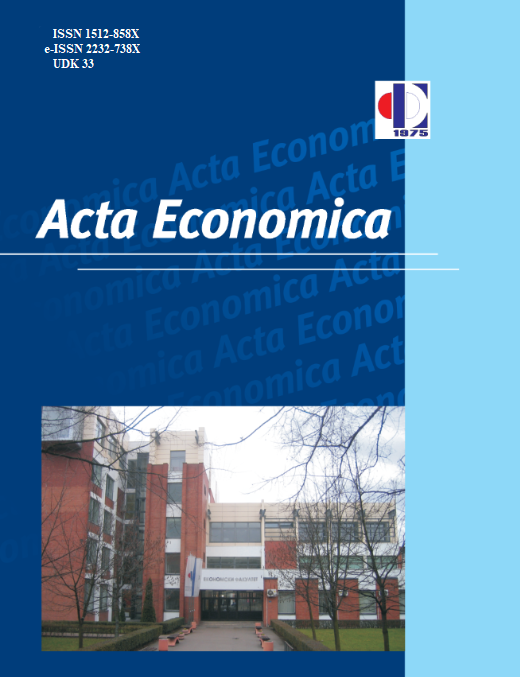Specificity of Fiscal Policy in the Monetary Union
DOI:
https://doi.org/10.7251/ACE1828097TAbstract
The condition of the optimal currency area as a theoretical basis of the monetary integration considers the harmonization of the fiscal and monetary policy crucial in achieving the efficient functioning of the monetary union. The issue of sustainability of the monetary union without fiscal union reaches real intensity in times of crisis and market instability. In that context, this paper focuses on the relation of uncoordinated fiscal policies and non-fulfillment of the fiscal criteria of convergence with the functioning and sustainability of the monetary union. The aim of this research is to establish whether, based on the analysed theoretical assumptions and empirical case, the fiscal criteria are respected in practice in the member countries, and how specificity of the fiscal policy influences the monetary integration especially in the years of crisis. We started research with the cost-benefit analysis of the monetary union pointing out to the specific costs and benefits occurring when a country joins the monetary union. We examined the fiscal parameters of the convergence criteria of the member states pointing to the problem of heterogeneity of members and deviations from the reference values of the Union. The results show that the metodology used to establish the set norms of the fiscal convergence cannot cor-respond symetrically to all member countries. The results also point to the
fact that, unlike symmetrical, in the emergence of asymmetric shocks, i.e.
disorders that affect various countries differently, membership in the monetary
union becomes more expensive because of the inability to conduct
monetary policy.
Downloads
Published
2018-12-24
Issue
Section
Чланци

